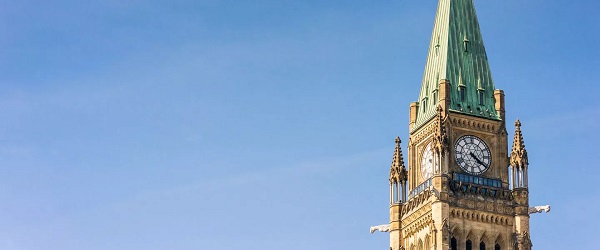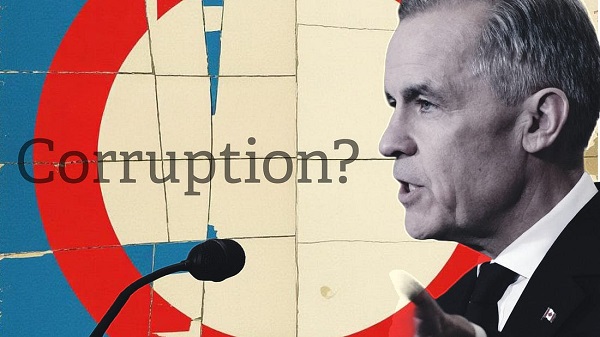Alberta
Alberta’s first COVID-19 death – Edmonton area man in his 60’s

From the Province of Alberta
One Albertan has died as a result of the virus, the first COVID-19 related death in the province. Aggressive public health measures continue to help limit the spread of COVID-19.
Latest updates
- 27 additional cases of COVID-19 have been confirmed in Alberta, bringing the total number of cases in the province to 146.
- Cases have been identified in all zones across the province:
- 101 cases in the Calgary zone
- 29 cases in the Edmonton zone
- 10 cases in the North zone
- Three cases in the Central zone
- Three cases in the South zone
- Of these cases, five are currently hospitalized, two admitted to intensive care units (ICU), and one patient has died.
- The individual was a male in his 60’s who had been admitted to ICU in the Edmonton zone on March 12 and had pre-existing conditions. This is the first confirmed COVID-19 related death in the province.
- Aggregate data, showing cases by age range and zone, as well as by local geographical areas, is available online at alberta.ca/covid19statistics. This site had 1,276 visits in its first 24 hours.
- Pharmacists have been working hard to help Albertans assess and screen for COVID-19. A new billing code has been created for this service.
- To ensure Albertans continue to have access to essential medications and to help pharmacists address situations where some individuals are attempting to stockpile medication, we are recommending pharmacies have the discretion to provide a maximum 30-day supply of prescription drugs.
- Some Albertans may need to refill their prescriptions more frequently than usual. They should speak with their pharmacist for advice on when it is appropriate to fill their prescriptions.
- To assist with the added associated costs, those with Alberta government-sponsored Coverage for Seniors and Non-Group Coverage will pay a lower copayment of up to $8 per prescription for a 30-day supply. The current copayment is up to $25 per prescription. Albertans with other coverage should consult with their benefits provider.
- Currently, there is no strong evidence to indicate ibuprofen could make COVID-19 symptoms worse beyond the usual known side-effects that limit the use of ibuprofen in certain populations. Albertans should consult with a doctor about what is best for them.
- Albertans can now meet with Alberta-licensed physicians through their smartphone, thanks to an initiative by TELUS Health. Find more information and download the app here.
- Social distancing measures continue to be an important way to minimize the spread of COVID-19. A tip sheet is available to help Albertans understand ways to minimize close contact with others in community settings.
- Mass gathering limitations and restrictions around public recreation and private entertainment facilities remain in place across the province.
Emergency isolation support
$50 million is being made available for Albertans who must self-isolate and do not have another source of pay or compensation while they are self-isolated.
A one-time payment of $1,146 will be distributed to bridge the gap until the federal emergency payments begin in April.
Applications for emergency isolation support will be available on Alberta.ca next week.
Student loans and apprenticeship training
Government will implement a six-month, interest-free moratorium on student loan payments for all individuals who are in the process of repaying these loans.
The March-April and May-June intakes for apprenticeship training are cancelled.
Apprenticeship students who started classroom instruction on or after March 2 should discuss tuition refund options with institutions, and will receive priority for fall intake. Apprenticeship students who started classroom instruction before March 2 will be advised by their institution about next steps for distance learning options, assessments and completion.
Information for travellers
Travel outside the country is strongly discouraged. Given the rapid global spread of the virus, it is no longer possible to assess health risks for the duration of the trip.
Any traveller returning from outside of the country should self-isolate for 14 days, even if they are feeling well, and monitor for symptoms.
Any traveller who has returned before March 12 should closely monitor themselves for symptoms. If they experience symptoms, they should self-isolate immediately and call Health Link 811 for follow-up assessment and testing.
The Alberta government and Travel Alberta have launched a campaign to inform Canadians travelling in the United States and Mexico about the importance of returning home.
COVID-19 related information has been provided for departing and returning passengers at the international airports in both Edmonton and Calgary. This information has also been shared with all airports in Alberta and several airlines.
Quick facts
- The most important measures that Albertans can take to prevent respiratory illnesses, including COVID-19, is to practise good hygiene.
- This includes cleaning your hands regularly for at least 20 seconds, avoiding touching your face, coughing or sneezing into your elbow or sleeve, disposing of tissues appropriately, and staying home and away from others if you are sick.
- Anyone who has health concerns or is experiencing symptoms of COVID-19 should complete an online COVID-19 self-assessment.
- For recommendations on protecting yourself and your community, visit alberta.ca/COVID19.
Related information
Social distancing: what to do and what not to do to curb spread of COVID-19
Alberta
Diploma Exams Affected: No school Monday as ATA rejects offer of enhanced mediation

Premier Danielle Smith, Minister of Finance Nate Horner, and Minister of Education Demetrios Nicolaides issued the following statement.
“Yesterday, the Provincial Bargaining and Compensation Office wrote to the Alberta Teachers’ Association (ATA) and formally requested an agreement to enter an enhanced mediation process.
“This process would have ensured that students returned to the classrooms on Monday, and that teachers returned to work.
“Negotiating would have continued with the ATA, Teachers’ Employer Bargaining Association (TEBA) and a third-party mediator to propose a recommended agreement.
“We are very disappointed that the Alberta Teachers’ Association refused this offer. Teachers and students should also be disappointed.
“PBCO made this offer to the ATA because the union has not made a reasonable offer and this strike is impacting students. Alberta’s government is trying to put kids first and bring an end to this strike.
“The offer of enhanced mediation provided a clear path to ending it.
“We want the same things as the ATA: More teachers. More pay for teachers. More educational assistants. And more classrooms.
“This strike has gone on too long and we are extremely concerned about the impact it is having on students.
“We are willing to consider further options to ensure that our next generation gets the world-class education they deserve. After about three weeks, a strike of this nature would reach the threshold of causing irreparable harm to our students’ education.
“The ATA needs to do what is right for its members, and for all Alberta students.
“If it refuses to do so, we will consider further options to bring this strike to an end.”
Diploma exam update
November diploma exams will be optional for students.
With instructional time in schools disrupted due to the teacher strike, the November 2025 diploma exams will now be optional for students. Students who wish to write a diploma exam may request to do so, and their school boards will accommodate the request.
The optional diploma exams apply to all schools provincewide. These exams will still take place on the currently scheduled dates.
Students who choose not to write the November diploma exams can still complete their courses and graduate on time. Their final grade will be based entirely on the school-awarded mark provided by their teacher.
Choosing not to write the November diploma exams will not affect a student’s ability to apply to, be accepted by, or attend post-secondary institutions after graduation.
No changes have been made to the January and June diplomas and provincial achievement tests.
Quick facts
- Students are automatically exempted from writing the November diploma exams but can request to write them.
- School boards must allow the student to write the diploma exam if requested.
Alberta
Alberta taxpayers should know how much their municipal governments spend

From the Fraser Institute
By Tegan Hill and Austin Thompson
Next week, voters across Alberta will go to the polls to elect their local governments. Of course, while the issues vary depending on the city, town or district, all municipal governments spend taxpayer money.
And according to a recent study, Grande Prairie County and Red Deer County were among Alberta’s highest-spending municipalities (on a per-person basis) in 2023 (the latest year of comparable data). Kara Westerlund, president of the Rural Municipalities of Alberta, said that’s no surprise—arguing that it’s expensive to serve a small number of residents spread over large areas.
That challenge is real. In rural areas, fewer people share the cost of roads, parks and emergency services. But high spending isn’t inevitable. Some rural municipalities managed to spend far less, demonstrating that local choices about what services to provide, and how to deliver them, matter.
Consider the contrast in spending levels among rural counties. In 2023, Grande Prairie County and Red Deer County spent $5,413 and $4,619 per person, respectively. Foothills County, by comparison, spent just $2,570 per person. All three counties have relatively low population densities (fewer than seven residents per square kilometre) yet their per-person spending varies widely. (In case you’re wondering, Calgary spent $3,144 and Edmonton spent $3,241.)
Some of that variation reflects differences in the cost of similar services. For example, all three counties provide fire protection but in 2023 this service cost $56.95 per person in Grande Prairie County, $38.51 in Red Deer County and $10.32 in Foothills County. Other spending differences reflect not just how much is spent, but whether a service is offered at all. For instance, in 2023 Grande Prairie County recorded $46,283 in daycare spending, while Red Deer County and Foothills County had none.
Put simply, population density alone simply doesn’t explain why some municipalities spend more than others. Much depends on the choices municipal governments make and how efficiently they deliver services.
Westerlund also dismissed comparisons showing that some counties spend more per person than nearby towns and cities, calling them “apples to oranges.” It’s true that rural municipalities and cities differ—but that doesn’t make comparisons meaningless. After all, whether apples are a good deal depends on the price of other fruit, and a savvy shopper might switch to oranges if they offer better value. In the same way, comparing municipal spending—across all types of communities—helps Albertans judge whether they get good value for their tax dollars.
Every municipality offers a different mix of services and those choices come with different price tags. Consider three nearby municipalities: in 2023, Rockyview County spent $3,419 per person, Calgary spent $3,144 and Airdrie spent $2,187. These differences reflect real trade-offs in the scope, quality and cost of local services. Albertans should decide for themselves which mix of local services best suits their needs—but they can’t do that without clear data on what those services actually cost.
A big municipal tax bill isn’t an inevitable consequence of rural living. How much gets spent in each Alberta municipality depends greatly on the choices made by the mayors, reeves and councillors Albertans will elect next week. And for Albertans to determine whether or not they get good value for their local tax dollars, they must know how much their municipality is spending.
-

 International1 day ago
International1 day agoPoland’s president signs new zero income tax law for parents with two children
-

 Business1 day ago
Business1 day agoFord’s Whisky War
-

 Business2 days ago
Business2 days agoFederal Budget 2025: A responsible media would ensure Canadians know about the dismal state of federal finance
-

 Business2 days ago
Business2 days agoCanada has an energy edge, why won’t Ottawa use it?
-

 Business2 days ago
Business2 days agoEthics on Ice: See You Next Year
-

 International1 day ago
International1 day agoAustralian territory bans men from women’s prisons in national first
-

 National1 day ago
National1 day agoPoilievre accuses Canada’s top police force of ‘covering up’ alleged Trudeau crimes
-

 COVID-191 day ago
COVID-191 day agoFreedom Convoy leader Tamara Lich says ‘I am not to leave the house’ while serving sentence








